Emotions Are Energy: They Create and Transform Us
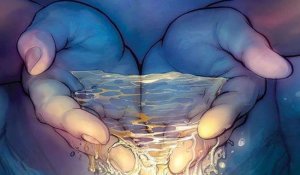
Emotions are the score that orchestrates our daily lives. Sometimes the music is happy, lively, and intense, but after a while, it envelops us in its melody, sad and full of disenchantment. Its notes are the ones that feed us, offer us the energy necessary to transform our reality…
There is an old Arabic proverb that says, “he who doesn’t understand a look will never understand an explanation.” A sentence full of great wisdom, because from it, we can take away the nature of emotions as a universal language.
Your emotions can be your great strength or the window the fogs up your existence with shadows. If you learn to know and manage them, you will be a great creator of your own reality: of your happiness.
Maybe the subject of emotional intelligence interests you and you have read a lot about it. However, today we want to invite you to see emotions in another way: as a powerful weapon, like an energy that you can learn about and control to redefine many aspects of yourself and your own reality.
Emotions create our reality
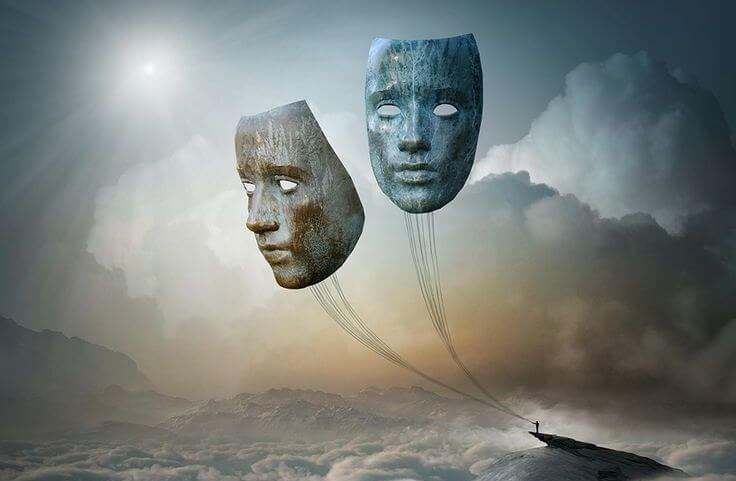
According to work published by social psychologist Barbara Fredrickson in the “Review of General Psychology” (2008), positive emotions, in addition to giving us immediate satisfaction, act as learning mechanisms. In other words, we would speak of the following relationship: more satisfactory emotions, means better personal resources for dealing with times of crisis.
As the humans that we are, we all want to be happy. For this, we must remember that sometimes it is enough to have inner peace, being free of past grudges, hate, or frustration. A free mind is a heard that can allow itself to smile…
If emotions are capable of transforming our reality, it is not simply because of magic. Something that we must keep in mind is that an emotion is not just an inner state; it is a combination of various powerful elements:
- Cognitions, that is, the way we process everything that surrounds us, what we see, feel, and experience. Everything acquires an inner meaning for us.
- Our feelings and the way we react. To understand this, we will give you a simple example: you are in love with someone and you do not dare tell them. In the end, it is too late and that person disappears from your life, taking with them the chance to at least try.
The emotion you will feel is sadness because you did not know how to react in time when that feeling was positive and intense. You did not have the right reaction and your reality is now blurred by a condition that you will not be able to resolve: “but if I had…”
Our brain, an amazing chemical dance
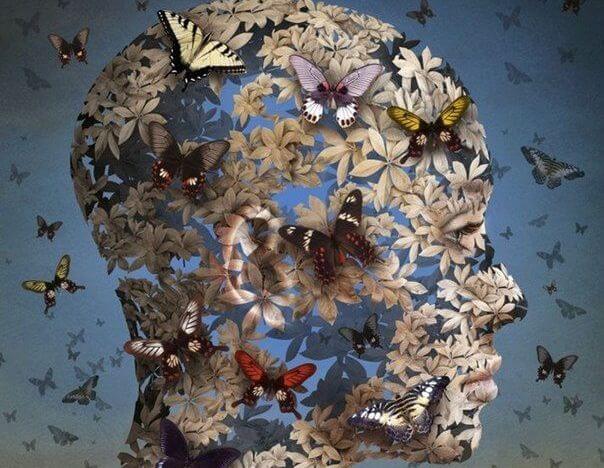
Our brain is a complex network that processes great quantities of information each second of the day. We process sensory stimuli, we store experiences, dreams, scenes we see… Most of these elements, whether you believe it or not, are stored in our brain with an association to a certain emotion.
My eyes always look for beautiful things around me, and if I do not see them, I provide them. Because a smile is free, because it does not imply any effort to allow myself to trust and have hope in things, to think that I deserve to be happy and that a bad time has no reason to ruin my day.
Our brain is also often seen as a little biochemical chaos where we are determined by the influence of our neurotransmitters. In reality, they are the actual creators of our emotions.
Main neurotransmitters related to emotions
The main neurotransmitters that act as creators of our emotions are:
- Dopamine is related to pleasure and reward experiences in our learning process. In other words, when we do something good, we are gratified by the excretion of dopamine and we receive a pleasant sensation.
- Serotonin, in turn, is a neurotransmitter associated with memory and learning. So then, it is important to know that an imbalance of serotonin levels can increase anger, anxiety, depression, and the sense of panic.
- An adequate level of norepinephrine keeps stress and anxiety under control.
Emotional energy to transform your life
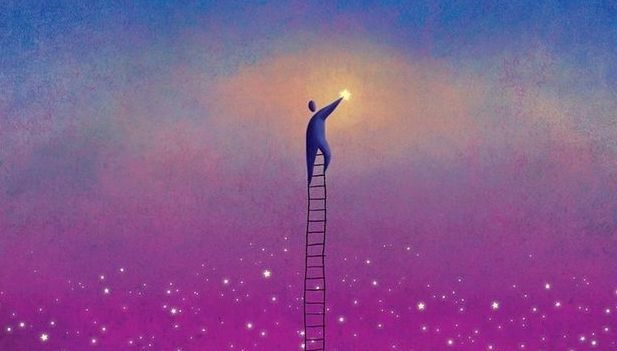
Dr. Fredrickson explains that there is a curious paradox respecting positive emotions: their intensity is much more brief than negative emotions. To say this more simply: the sensation of intense happiness is shorter lived than states of sadness.
Knowing this, the best recommendation would be to “accumulate” many positive experiences that can more efficiently counteract those states of negativity. We will explain this in greater detail below.
The broaden-and-build theory of positive emotions
As we said in the introduction, if human beings are capable of accumulating numerous positive emotions, they will acquire more competent basic tools for dealing with difficult times.
Experts call it the “broaden-and-build theory” and it is based on the need to broaden our positive experiences to acquire new skills. While negative emotions have the usual reaction of avoiding, denying, or not moving in the face of problems, positive emotions “build us up” and favor the relationship between “thoughts and actions.”
So then, following the principle of this theory, we should focus our days on searching for positive emotions. Such simple aspects as letting ourselves learn new things, having relationships with others, walking, touching, feeling, dancing, walking, or reading are little “bricks of positivity” that continue building a continuous path. Dare to try it.
Emotions are sometimes like floating stars that oscillate out of control. Only when we know them and ourselves will they rise up like luminous stars capable of guiding our path.
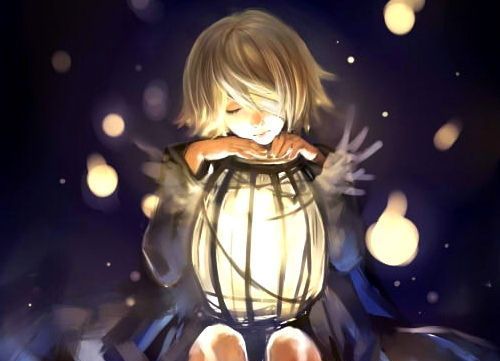
Emotions are the score that orchestrates our daily lives. Sometimes the music is happy, lively, and intense, but after a while, it envelops us in its melody, sad and full of disenchantment. Its notes are the ones that feed us, offer us the energy necessary to transform our reality…
There is an old Arabic proverb that says, “he who doesn’t understand a look will never understand an explanation.” A sentence full of great wisdom, because from it, we can take away the nature of emotions as a universal language.
Your emotions can be your great strength or the window the fogs up your existence with shadows. If you learn to know and manage them, you will be a great creator of your own reality: of your happiness.
Maybe the subject of emotional intelligence interests you and you have read a lot about it. However, today we want to invite you to see emotions in another way: as a powerful weapon, like an energy that you can learn about and control to redefine many aspects of yourself and your own reality.
Emotions create our reality

According to work published by social psychologist Barbara Fredrickson in the “Review of General Psychology” (2008), positive emotions, in addition to giving us immediate satisfaction, act as learning mechanisms. In other words, we would speak of the following relationship: more satisfactory emotions, means better personal resources for dealing with times of crisis.
As the humans that we are, we all want to be happy. For this, we must remember that sometimes it is enough to have inner peace, being free of past grudges, hate, or frustration. A free mind is a heard that can allow itself to smile…
If emotions are capable of transforming our reality, it is not simply because of magic. Something that we must keep in mind is that an emotion is not just an inner state; it is a combination of various powerful elements:
- Cognitions, that is, the way we process everything that surrounds us, what we see, feel, and experience. Everything acquires an inner meaning for us.
- Our feelings and the way we react. To understand this, we will give you a simple example: you are in love with someone and you do not dare tell them. In the end, it is too late and that person disappears from your life, taking with them the chance to at least try.
The emotion you will feel is sadness because you did not know how to react in time when that feeling was positive and intense. You did not have the right reaction and your reality is now blurred by a condition that you will not be able to resolve: “but if I had…”
Our brain, an amazing chemical dance

Our brain is a complex network that processes great quantities of information each second of the day. We process sensory stimuli, we store experiences, dreams, scenes we see… Most of these elements, whether you believe it or not, are stored in our brain with an association to a certain emotion.
My eyes always look for beautiful things around me, and if I do not see them, I provide them. Because a smile is free, because it does not imply any effort to allow myself to trust and have hope in things, to think that I deserve to be happy and that a bad time has no reason to ruin my day.
Our brain is also often seen as a little biochemical chaos where we are determined by the influence of our neurotransmitters. In reality, they are the actual creators of our emotions.
Main neurotransmitters related to emotions
The main neurotransmitters that act as creators of our emotions are:
- Dopamine is related to pleasure and reward experiences in our learning process. In other words, when we do something good, we are gratified by the excretion of dopamine and we receive a pleasant sensation.
- Serotonin, in turn, is a neurotransmitter associated with memory and learning. So then, it is important to know that an imbalance of serotonin levels can increase anger, anxiety, depression, and the sense of panic.
- An adequate level of norepinephrine keeps stress and anxiety under control.
Emotional energy to transform your life

Dr. Fredrickson explains that there is a curious paradox respecting positive emotions: their intensity is much more brief than negative emotions. To say this more simply: the sensation of intense happiness is shorter lived than states of sadness.
Knowing this, the best recommendation would be to “accumulate” many positive experiences that can more efficiently counteract those states of negativity. We will explain this in greater detail below.
The broaden-and-build theory of positive emotions
As we said in the introduction, if human beings are capable of accumulating numerous positive emotions, they will acquire more competent basic tools for dealing with difficult times.
Experts call it the “broaden-and-build theory” and it is based on the need to broaden our positive experiences to acquire new skills. While negative emotions have the usual reaction of avoiding, denying, or not moving in the face of problems, positive emotions “build us up” and favor the relationship between “thoughts and actions.”
So then, following the principle of this theory, we should focus our days on searching for positive emotions. Such simple aspects as letting ourselves learn new things, having relationships with others, walking, touching, feeling, dancing, walking, or reading are little “bricks of positivity” that continue building a continuous path. Dare to try it.
Emotions are sometimes like floating stars that oscillate out of control. Only when we know them and ourselves will they rise up like luminous stars capable of guiding our path.

This text is provided for informational purposes only and does not replace consultation with a professional. If in doubt, consult your specialist.







